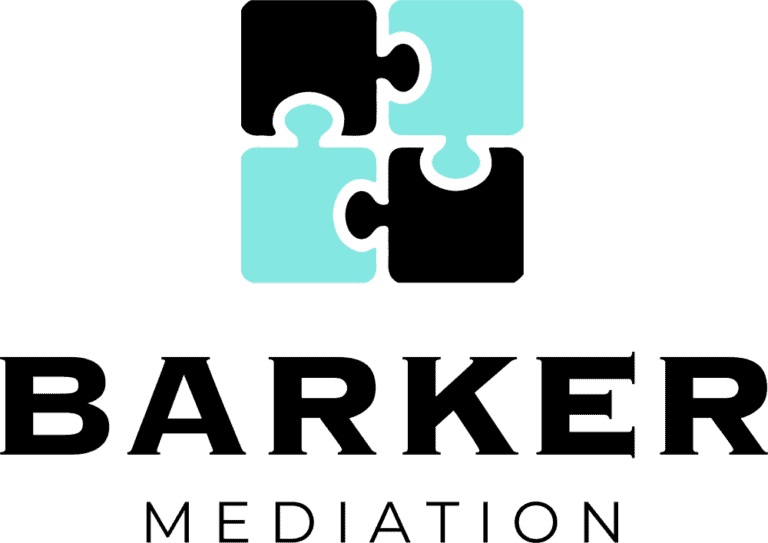Family Mediation Coventry FAQs
What is family mediation and how does it work?
Family mediation is a structured, confidential process which helps couples divorcing (or family members), to resolve disputes outside the courts using an impartial and specially trained mediator. It’s all about communication, understanding and common sense especially when it comes to parenting arrangements, finances or property.
Barker Mediation, we bring resolving capacity to both sides of conflict where both parties are heard, reasonable and separately meet the party across from them. It is not therapy or legal advice: It’s way forward.
Who is family mediation for?
We offer family mediation for anyone who is going through family breakdown; whether you are:
Deciding to divorce or separate
Have difficulty coming to an agreement on childcare and/or living arrangements
Rebecca Lack Disagreements about money, property, or possessions
Confronting intergenerational problems (between parents and their adult children).
Member of a blended family trying to find their way through tricky dynamics
If you would like to de-stress, stay out of court and preserve important relationships, Family Mediation may be the way forward.
Is family mediation legally binding?
The terms of a family mediation are not legally binding unless they have been formally adopted by the court. However, they can become legally binding when made with the assistance of a solicitor by making them into a Consent Order (for finances) or Parenting Plan/Agreement for children.
We always recommend that clients obtain independent legal advice before making a decision to finalise so that they have peace of mind in the long term.
How long does it take to resolve a family mediation?
Anywhere from 1 to 7 sessions is common, but typically clients do about 2-5. Sessions usually take about 90 minutes. Some families are quicker to get their issues settled, and others will take longer especially if emotions run high or you were trying to cover multiple subjects.
Family mediation is also much quicker than going to court you can book a joint meeting in days or weeks, rather than the months or even years as it might take for things to go through court.
How much is family mediation?
We know that cost is a huge barrier. At Barker Mediation, our rates and fees are clear and reasonable. Many clients are eligible for Legal Aid, making family mediation free if you qualify.
For private clients, costs are generally shared between the two parties. Family mediation is far less expensive than fighting in court, both financially and emotionally.
What is involved in the first family mediation session?
The first step is a one-to-one meeting known as a MIAM (Mediation Information and Assessment Meeting). You and the person you are in dispute with meet with one of our mediators at separate times to speak about your case and whether family mediation is appropriate.
If everyone is happy to proceed and agree with the process, joint sessions commence. Each of you will have a chance to speak, raise issues, and strive for resolution all under the expert direction of the mediator.
Do I have to participate in family mediation?
And the answer is technically yes but not a good idea. If you are considering going to court, a MIAM is generally required before a judge will allow your case to be heard. The court will want you to at least attempt family mediation in many cases.
The key effect of not showing up in this case is that it sends the message you aren’t willing to settle matters amicably which can influence how judges will perceive your motives.
What if we cannot agree in family mediation?
It happens sometimes, and that’s fine. Even if complete agreement doesn’t result, family mediation frequently “narrow[s] the issues or clarif[ies] each party’s position.”
If no resolution can be reached, the mediator has you sign a form that shows that mediation was attempted in good faith and MAYBE you get to go to your hearing at court.
Can family mediation help even when there has been domestic violence?
Safety is always our priority. We are particularly careful when there is a history or risk of domestic abuse. Family mediation is not suitable in every case.
In the MIAM you get to talk about concerns privately. If there’s any sign that mediation could potentially be unsafe or unfair, we’re not going to go down that route.
What are the advantages of having mediation in the family instead of going to court?
Why choose to mediate in the first place rather than go to court and have a judge decide for you? Here’s why family mediation is nearly always the preferable first step:
Faster: Weeks, not years.
Cheaper: just a fraction of the price.
Peaceful discussion : alternative to litigation much less stress.
Private: Totally private.
More control: You decide the outcome, not a judge.
“It’s definitely a morale boost for the kids,” he said, adding that “for parents mostly, family mediation helps to save co-parenting relationships” and limit the lasting emotional harm to children.
What are your mediators’ qualifications?
By Barker Mediation All our mediators at Barker Mediation are accredited by the Family Mediation Council (FMC). They are completely dedicated to and undergo ongoing professional development, and they have years of hands-on experience supporting families through difficult transitions.
You’re in safe, caring and expert hands.
Will I be in the same room as my ex during mediation?
Not necessarily. If you really don’t want to be in the same room, we provide shuttle mediation, with each party sitting in a separate room and the mediator going back and forth between you.
It makes for calmer communication and can be useful in any high-conflict situation. And always the objective is the same about helping to move you to that place of integrity.
Can kids participate in family mediation?
Yes, sometimes. With agreement from everyone, the children can have a say in the process through Child-Inclusive Mediation. They will have a conversation with a mediator who is trained in how to do this (in an age-appropriate manner, of course), and the mediator will tell them that it’s O.K. for each of them to want both parents at their birthday party, and she won’t be asking you to take sides or make anyone feel bad about any possible arrangement.
Family mediation is most effective when children’s needs are placed front and centre.
What if one person is agreeable to mediation, while the other isn’t?
This is a widespread concern. Typically, one person feels the urge to talk about things, and the other doesn’t. At Barker Mediation we write to the unwilling party politely, describing what family mediation is and how it works (plus what it can do and importantly, not do).
At times, what people need is for the process to feel fair and neutralistic, not one where they are being blamed. We never have to force anyone but we do everything we can to make it clear that both sides will be better off.
How do I begin family mediation at Barker Mediation?
It begins with an informal, confidential conversation. If you prefer, you can reach out and ask for a MIAM by telephone or use our online request form. From there we take you through step by step no pressure, no jargon, no judgment.
Whether you’re positive or just want to explore, we’re here to listen.


